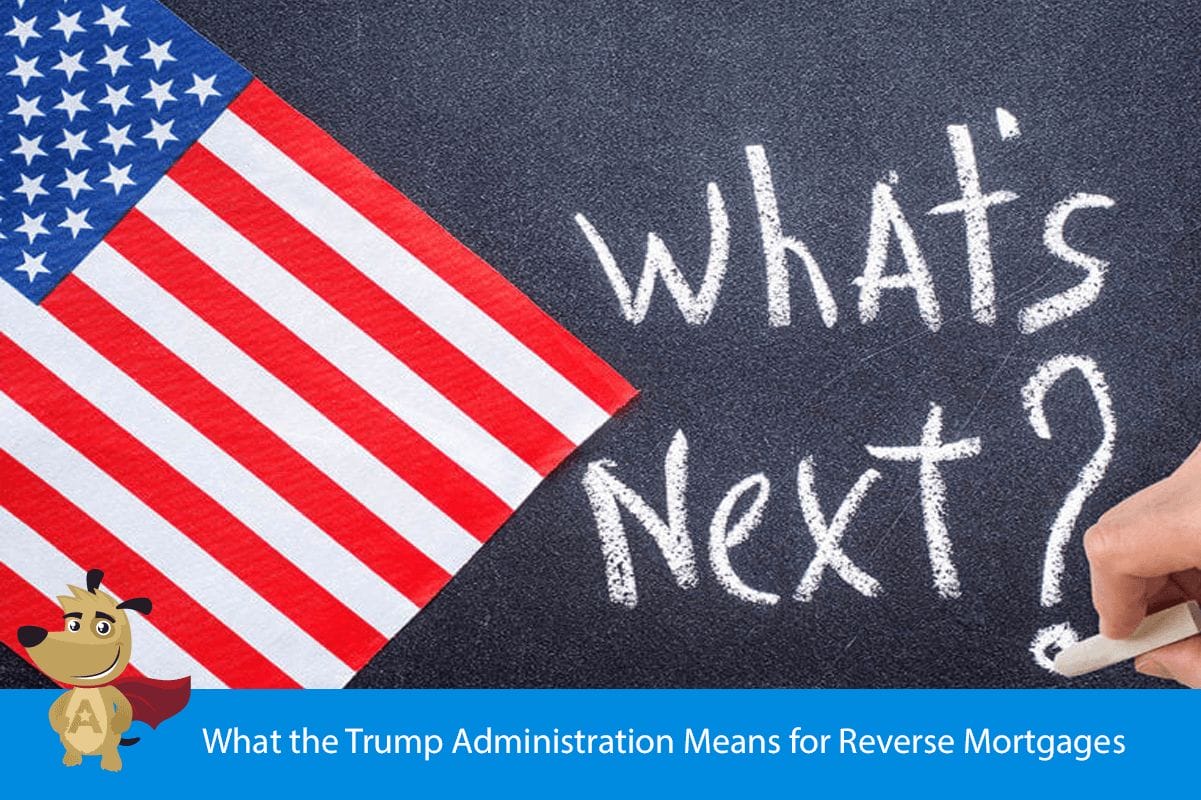
America’s #1 Rated Reverse Lender*
What the Trump Administration Means for Reverse Mortgages
 |
Michael G. Branson, CEO of All Reverse Mortgage, Inc., and moderator of ARLO™, has 45 years of experience in mortgage banking, with the past 20 years devoted exclusively to reverse mortgages. A Forbes Real Estate Council member, he developed the industry's first fixed-rate jumbo reverse mortgage and has been featured in Forbes, Kiplinger, the LA Times, and Yahoo Finance. (License: NMLS# 14040) |
 |
Cliff Auerswald, President of All Reverse Mortgage, Inc., and co-creator of ARLO™ — the industry's first real-time reverse mortgage pricing engine — has 27 years of experience in mortgage banking, with 20+ years focused exclusively on reverse mortgages. A recognized expert in reverse mortgage technology and consumer education, he has been featured in Kiplinger, Yahoo Finance, Realtor.com, and HousingWire. (License: NMLS# 14041) |
2020 Update:
President Trumps’s FY2021 Budget Forecasts Strong HECM Performance
The White House this week released a Fiscal Year 2021 proposed budget that predicted strong economic numbers for the Home Equity Conversion Mortgage program during the next federal fiscal year that begins on October 1, 2020.
The budget projects the HECM program will operate at a credit subsidy level equal to negative 2.39, which means the program will generate substantially more receipts than it pays out in claims for that year’s book of business. Budget estimates show HECM endorsements totaling $13.6 billion for the current federal fiscal year that ends September 30 and $10.7 billion in FY2021.
Since the HECM program is self-sustaining and doesn’t require an annual appropriation from Congress, the President’s budgets provide a valuable bellwether on future HECM performance.
ALERT: Oct. 2017 HUD to Lower Benefits/Raise Costs Under President Trump-Sec. Carson

Why Trump’s Policies Could Increase Reverse Mortgage Demand
No matter your political stripe, presidential transitions mark a time of change and uncertainty—after eight years of policies shaped by one administration, another one comes along with a different perspective and plan for governance.
If you’re nearing retirement, that anxiety could be amplified: What would a new administration mean for your future as you exit the workforce and enter the next exciting phase of your life?
Reverse mortgages have recently come into the spotlight within the Trump Administration’s outlook on housing and health care costs that the senior population will face.
Long-term care concerns
President Trump and his administration have vowed to cut the federal budget by unprecedented amounts, and though the Republican attempts to overhaul the tax code and health care system have been met with some resistance, the numbers could be concerning for retirees considering the cost of long-term medical care.
The administration has vowed not to touch Medicare, but top budget officials have taken aim at Medicaid—a program that helps older Americans pay for care in addition to serving as a social safety net for children and low-income families.
According to recent research from the Kaiser Family Foundation, Medicaid covers a full 62% of older Americans in long-term care facilities. Medicare only provides coverage for a limited amount of time, and cash reserves can run out quickly — prompting many folks with extended long-term care needs to rely on Medicaid benefits as a crucial lifeline.
But with the Trump administration signaling a desire to cut more than $1 billion from the Medicaid program, home equity could become an even more important retirement asset to cover unexpected care costs.
An emphasis on self-reliance and housing
The president rode to office on a wave of dissatisfaction with Washington, and so far Trump’s administration has made moves to emphasize the individual’s responsibility for his or her financial future.
Ben Carson, secretary of the Department of Housing and Urban Development, has often spoken on these themes, and has dedicated his tenure to exploring programs that allow homeowners—the young and seniors alike—build wealth through their properties.
“Every day we fight for freedom, looking for ways to have more choices, to make up our own minds, and to use our resources for our needs, in our own way,” Carson told the audience at a recent convention of senior care providers in Florida.
He also used his remarks to discuss the recent improvements to the reverse mortgage, which his department oversees—including Financial Assessment to ensure that borrowers can meet their responsibilities under these loans, and clarifications to rules that allow spouses to remain in the home even after the death of the borrower.
“This is a top priority for my department: To give seniors more opportunities, more alternatives, more choices, and, if desired, to help more people age in place,” Carson said.
Carson’s commentary could signal a renewed dedication to the government-backed Home Equity Conversion Mortgage in Washington. But at the very least, his attitudes reflect a growing political shift that puts the onus on the individual, which should make senior homeowners take a close look at how a reverse mortgage can help to convert home equity into additional cash flow in retirement.


 Michael G. Branson
Michael G. Branson Cliff Auerswald
Cliff Auerswald

Have a Question About Reverse Mortgages?
Over 2000 of your questions answered by ARLO™
Ask your question now!